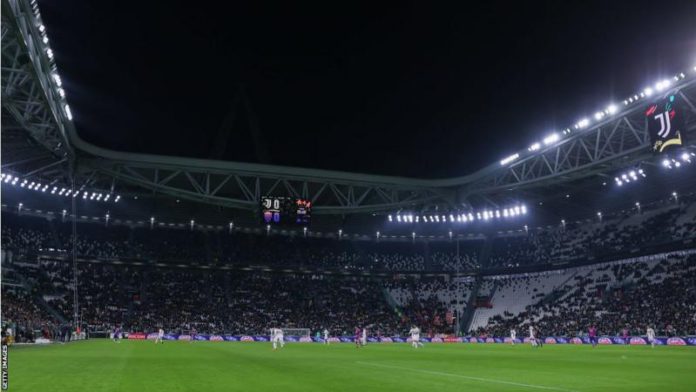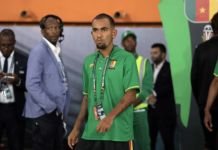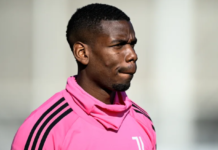
Juventus’ 15-point penalty over transfer dealings has been reversed with Italy’s highest sporting court ordering the case to be re-examined.
Juve were punished in Janaury after being found guilty of false accounting.
The club have now moved from seventh to third in Serie A, but could still be punished at a later date when a new hearing is held.
Tottenham director of football Fabio Paratici lost his appeal against a 30-month ban as part of the same case.
The former Juve sporting director was one of 11 directors at the club, either former or still in place at the time of the ruling, who were sanctioned.
He stepped back from his role Spurs when his ban was increased to be worldwide, at the same time as the north London club began searching for a replacement for former manager Antonio Conte.
Like Paratici, former president Andrea Agnelli, ex-chief executive Maurizio Arrivabene and sports director Federico Cherubini had their appeals rejected.
Former player and director Pavel Nedved, Paolo Garimberti and Enrico Vellano were successful with their appeals.
Rather than the club being cleared, Juve’s case will now return to the Italian Football Federation appeals court, the body which gave the initial punishment.
With eight games to go in the season, AC Milan have been knocked out of the Champions League places by Juve while Roma drop to fourth.
Juventus chief football officer Francesco Calvo welcomed the decision, saying it provided certainty to theTurin club and the other sides battling to finish in the top four.
“As of today, we finally have certainty and we expect that the points that have been given back to us will remain with us forever,” he added.
Why were Juventus docked 15 points?
The Old Lady were handed a points deduction after an investigation into the club’s past transfer dealings spanning two years from 2019 to 2021 by Italian football’s governing body (FIGC).
Juventus were accused of fixing their balance sheets by artificial gains of around 60m euros from club transfers, charges they were found guilty of by the FIGC’s appeals court in January.
The club, however, denied any wrongdoing and took their case to a tribunal at the Olympic Committee, Italy’s highest sporting court.
The tribunal did not rule on the merits of the case but instead examined the legal legitimacy of the punishments handed out by the FIGC to the club and directors.
Juventus were among several Serie A clubs acquitted of suspect transfer activity by an FIGC appeals court trial last year but the investigation into the club was reopened due to new evidence from a separate criminal probe into their finances.
The 15-point sanction was tougher than the nine-point deduction prosecutors had requested.
Who are the individuals involved?
Agnelli and the rest of the club’s board, including former midfielder Nedved, stepped down in November while the investigation was taking place.
At the time, a statement said the resignations were “considered to be in the best social interest to recommend that Juventus equip itself with a new board of directors to address these issues”.
The chairman had presided over the club for 13 years, during which time Juventus won nine successive Serie A titles and reached two Champions League finals.
But last year they made a £220m loss – a record for an Italian club.
Agnelli and Arrivabene were banned from Italian football for two years, with Nedved receiving an eight-month suspension.
Cherubini and Paratici were suspended domestically for 16 months and two and a half years respectively.
Paratici left the club to become managing director at Tottenham before January’s ruling but his suspension was extended worldwide by Fifa in March – a decision the 50-year-old is also appealing against.
Juventus are also facing an investigation from Uefa over potential breaches of its club licensing and financial fair play regulations, which was announced last month.







